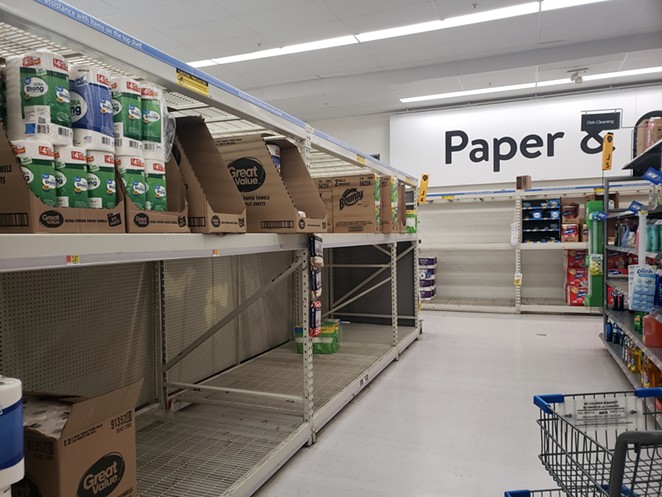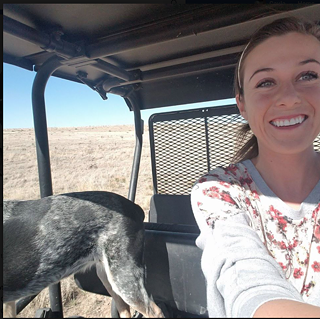At this point we’ve probably all seen the hilarious “Panic at the Costco” meme that’s been circling the internet for the past few days. Nice one, guys. As the old quip goes, “It’s funny because it’s true.” People have been panic-buying toilet paper in bulk for days now, leaving grocery store shelves completely bare and further contributing to the dystopian, post-apocalyptic atmosphere that has been driving our society into a foraging frenzy.
According to Randy Wild of Bend Counseling & Biofeedback, this widespread state of anxiety is directly linked to future-based fear.
“People are experiencing fear about what’s going to happen next,” said the licensed therapist, who has been working in the field of anxiety-related mental health conditions for 17 years. “Anxiety is precipitory. Those experiencing anxiety are focusing on the ‘what if’s,’ and worrying about what could potentially happen next.
“If someone is experiencing anxiety about the current circumstances, I would suggest that they ask themselves a simple question. ‘Right now, am I safe?’ Right now, am I healthy?’ Come back to the present moment, get away from future-based focuses. If the answer is yes, I would suggest focusing on how to stay healthy.”
Wild explained that when we feel panicked, the survival part of the brain kicks into high gear. “The limbic system takes over, the part of the brain that revolves around survival. The most intelligent part of the brain - the part allows us to process information and react accordingly - this part shuts off. In this dysregulated state our IQ drops dramatically and our creativity levels decrease.”
Perhaps this is why we’ve been compulsively stockpiling Purell and canned tuna fish, despite the authoritative assurances that doing so is pretty far from necessary.
“When we become anxious, we need to do what we can to get the cortex involved,” explained Wild. “The cortex is the part of the brain that helps us with critical thinking; helps us plan. One of the best things to do when you’re in a state of panic is move the body. Don’t let the stress hormones build up. Go for a walk around the block and ask yourself, ‘Am I safe NOW?’ Bring yourself back to the present moment. Another great tool is focusing on the breath. When people are anxious they experience changed breath, breaths are longer coming in and shorter coming out. Change your breathing by breathing in for two counts and out for six counts. The goal is to calm the central nervous system and move back into the cortex by being aware of your breath and your present state of being.”
Did I leave Bend as soon as a localized case was announced to hole-up in an isolated cabin deep in the woods of La Pine? Yes. Is it because I’m panicked? No. Slightly neurotic, maybe, but not panicked. It’s because my roommate had a cough and a fever, and I’m taking every necessary precaution to keep myself and others safe. Even though I’m a healthy individual with a strong immune system, the chances of me infecting someone else if I were to contract the virus are high.
It isn’t about me. It’s about protecting the elderly and those with weakened immune systems, who would likely suffer immensely if they were to be exposed.
“There’s a lot of inaccurate information circulating,” he said. “Employ critical thinking. Ask yourself, ‘What are my sources?’ There are fear mongers out there, people trying to induce fear and panic. You know the old saying, ‘If it bleeds, it leads.’ Make sure that your sources are accurate.” More about COVID-19
A state of emergency has been declared by the City of Bend, Deschutes County, State of Oregon and the United States in response to the coronavirus.
The first presumed case of COVID-19 in Deschutes County was reported March 11 by Deschutes County Public Health. As of March 13, there are 30 confirmed cases in Oregon across nine counties. Starting Monday, all schools across Oregon will close through the end of the month.
Stay up to date with all the latest coronavirus news in Central Oregon at the Source’s “Coronavirus HQ” page.
The Source is maintaining an active, growing list of event cancellations in Central Oregon. Check out our event cancellations in Central Oregon page, and email [email protected] with updated event information.
























